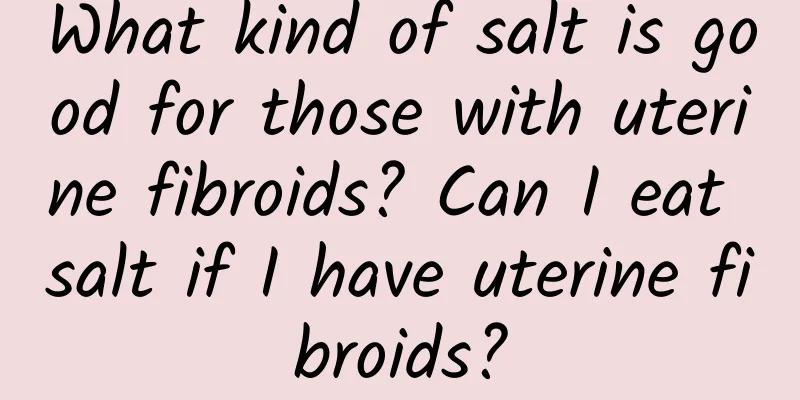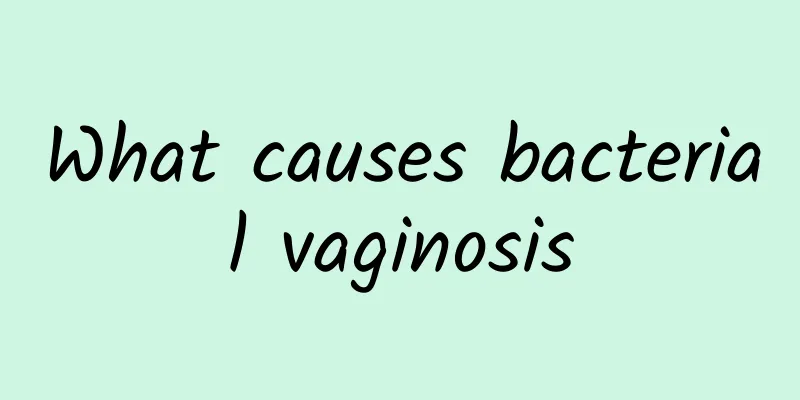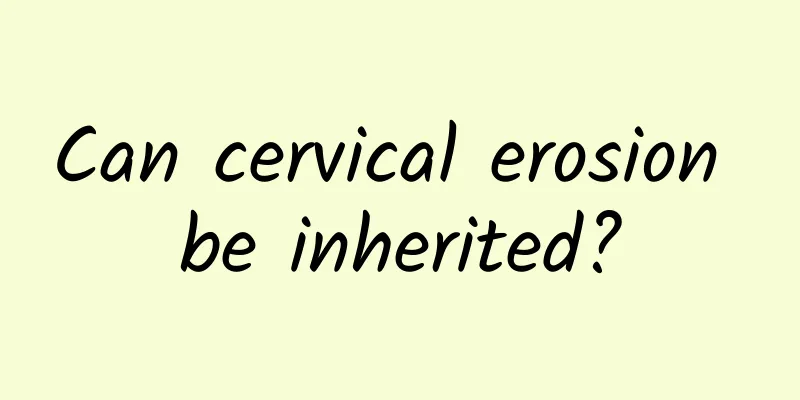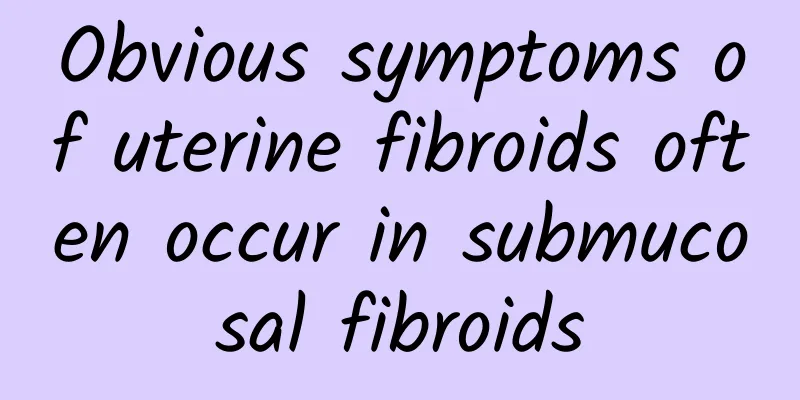What kind of salt is good for those with uterine fibroids? Can I eat salt if I have uterine fibroids?

|
What kind of salt is good for uterine fibroids? Uterine fibroids are a common gynecological disease, and female patients need to pay attention to the amount of salt they consume in their daily diet. This article will discuss the question of what kind of salt is good for patients with uterine fibroids and whether patients with uterine fibroids can consume salt. 1. The effect of edible salt on uterine fibroids Edible salt is necessary to maintain normal physiological functions of the human body, but a high-salt diet is associated with the occurrence of many chronic diseases. Experiments have shown that excessive salt intake can lead to accumulation of sodium ions in the body, causing water retention, which in turn increases blood pressure and puts a burden on the cardiovascular system. However, there are no clear research results on the direct impact of a high-salt diet on uterine fibroids. However, since patients with uterine fibroids often have symptoms such as menorrhagia and irregular periods, excessive salt intake may aggravate water retention and further aggravate the patient's discomfort. 2. The importance of moderate consumption of salt Moderate salt intake is very important for maintaining normal physiological functions of the human body. The human body needs about 5 grams of salt intake per day, but the actual intake often far exceeds this standard. Moderate consumption can maintain acid-base balance, maintain neuromuscular excitability and stabilize cardiovascular function. Therefore, for patients with uterine fibroids, the salt in the diet needs to be controlled within an appropriate range to avoid excessive intake. The importance of a low-salt diet A low-salt diet is particularly important for patients with uterine fibroids. A low-salt diet is not only beneficial for preventing water retention and reducing weight, but also can relieve the symptoms of irregular menstruation caused by uterine fibroids. Specific measures for a low-salt diet include: reducing the amount of salt used, avoiding the intake of high-salt foods such as processed foods and pickled foods, and eating more fresh fruits and vegetables. 4. Scientific and reasonable salt substitutes Although patients with uterine fibroids need a low-salt diet, it is not scientific and reasonable to completely ban salt. Because table salt contains sodium ions needed by the human body, an appropriate amount of intake is necessary for normal body function. If salt is completely stopped, it will cause the body to lack sodium ions and cause electrolyte disorders. Therefore, you can consider using scientific and reasonable salt substitutes, such as specially made low-sodium salt or seaweed salt, which can reduce sodium intake while ensuring nutritional intake. Patients with uterine fibroids need to pay attention to the issue of salt intake. Moderate salt intake helps maintain normal physiological functions of the human body. However, excessive salt intake may aggravate water retention, so a low-salt diet is needed. Reasonable salt substitutes are also an option. Pay attention to the reasonable amount of salt intake in the diet to maintain the health of the body. |
<<: What to eat after uterine fibroid removal surgery to recover faster
Recommend
There are several common factors that cause cervical hypertrophy
Cervical hypertrophy is one of the gynecological ...
Does the adult flu vaccine work?
Adult influenza vaccines may cause side effects, ...
What are the reasons for irregular menstruation in girls?
The reasons for irregular menstruation in girls a...
How to treat amenorrhea in adolescence
Adolescent amenorrhea is generally caused by horm...
Recipes that effectively relieve menstrual cramps
Dysmenorrhea seriously affects women's physic...
What to do if there is uterine fluid during pregnancy
What should I do if there is uterine fluid accumu...
What are the early symptoms of threatened abortion?
What are the early symptoms of threatened abortio...
2 exercises to train deep muscles without sagging your belly
The deep muscles, also known as posture-maintaini...
How to repair pelvic floor muscle uterine prolapse
Uterine prolapse refers to the descent of the ute...
Tips for routine examination of bacterial vaginosis
Gynecological diseases have always been a threat ...
What are the harmful manifestations of intrauterine adhesions?
What are the harmful manifestations of intrauteri...
How to better control dysmenorrhea in life
Dysmenorrhea is a common phenomenon in life. In f...
Black sesame seeds grow black hair and help lose weight! Nutritionist Zhao Hanying teaches: 2 black sesame drinks to supplement calcium and lose weight
Small black sesame seeds have great health power!...
Is the recurrence rate of cervical precancerous lesions high?
Is the recurrence rate of cervical precancerous l...
What can I eat after uterine fibroid surgery? How to take care of my diet after uterine fibroid surgery?
Uterine fibroids are a common disease among women...









